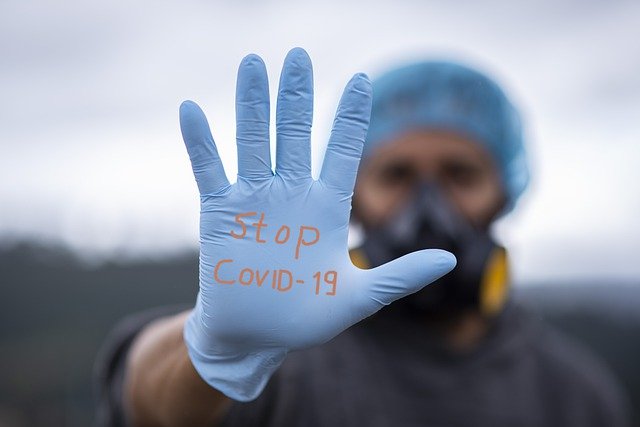COVID-19 Related Genes Locked for Medicine Guiding
- “Miracle Weight-Loss Drug” Sweeps Across America
- The United States Avian Influenza Outbreak Worse Than Expected?
- Global First: Bovine Avian Influenza Transmission to Humans Detected
- Potassium-Enriched Salt Substitutes: Reducing Blood Pressure Risk?
- Tritium Detection in Fukushima’s Seawater: Below Safety Standards
- What Reason Let AstraZeneca Withdraws COVID Vaccine From The Market?
COVID-19 Related Genes Locked for Medicine Guiding
COVID-19 Related Genes Locked for Medicine Guiding. “Nature” paper locks in 5 genes related to severe disease of COVID-19 disease and will guide “old medicines for new use”.
So far, remdesivir, dexamethasone and the COVID-19 neutralizing antibody bamlanivimab are one of the few drugs authorized to treat COVID-19s in the world.
On December 11, a team led by Professor Kenneth Baillie, an academic consultant for Critical Care Medicine at the Roslin Institute of the University of Edinburgh, published a paper in the journal Nature stating that they had locked in with the COVID-19 5 key genes related to severe illness.
The study also pointed out several drugs that have the potential to treat severely ill patients with COVID-19 disease.

Professor Bailey’s research team studied the DNA of 2,700 COVID-19 patients in 208 intensive care units in the UK. They found that the two parts of the antiviral immunity and anti-inflammatory response include:
- IFNAR2
- TYK2
- OAS1
- DPP9
- CCR2
The high expression of the five genes included is associated with severe cases of COVID-19 disease.
The research team believes that clinical trials should be conducted through drugs targeting specific antiviral and anti-inflammatory pathways. The most promising drug is a class of anti-inflammatory drugs called JAK inhibitors, including arthritis produced by Eli Lilly. The drug Baricitinib (Baricitinib).
At present, many clinical trials around the world are exploring the potential of existing drugs against the COVID-19 treatment. However, so far, the antiviral drugs redecive, the glucocorticoid dexamethasone and Eli Lilly’s COVID-19 neutralizing antibody bamlanivimab is one of the few drugs authorized to treat the COVID-19 in the world.
On December 11, the “New England Journal of Medicine” (NEJM) published a research paper entitled “Baritinib plus Remdesivir in the treatment of inpatients with COVID-19s”, showing that in the COVID-19 treatment trial ACTT-2 clinical, the COVID-19 The use of baritinib plus remdesivir in critically ill patients has a better effect on shortening the course of the disease and speeding up the improvement of clinical conditions than using remdesivir alone (ACTT-1). However, a few serious adverse events also occurred during the combination medication.
The ACTT-2 clinical trial was initiated by the National Institute of Allergy and Infectious Diseases (NIAID) under the National Institutes of Health (NIH) to evaluate the difference between combination medication and remdesivir alone.
A reporter from China Business News noted that on November 23, the ACTT-4 clinical trial was also registered on the ClinicalTrials website. On the basis of the above two drugs, hormones were added to evaluate Baritinib plus Reid. The difference between the curative effect of Civir and the hormone Garedivir.
According to the clinical trial results of ATTC-2, there is no significant difference in the improvement events of the clinical conditions of all patients in the enrolled group. The improvement time of the drug group and the control group is only one day, but the difference is significant in the subgroup analysis.
In response, Professor Cao Bin of the China-Japan Friendship Hospital told the CBN reporter: “According to the ACTT-4 trial protocol, we can understand that the trial designer’s treatment of baritinib plus remdesivir (ATTC-2) The curative effect is still unsatisfactory, because its effect on reducing the mortality rate is not significant, and the addition of the evaluation of hormones also reflects the researchers’ recommendations for hormones.
Professor Cao Bin believes that from ACTT-1 to ACTT-4, the research and design is deepening step by step. “ACTT-2 is based on the recognition of the results of ACTT-1, and now ACTT-4 is also using the results of ACTT-2 as the standard to study the effects of remdesivir plus hormone.” He told the CBN reporter, “but still It takes a certain amount of courage to admit that ACTT-2 has a heavy workload. They enrolled 1,033 patients.”
As for whether there will be a “magic bullet” for the COVID-19 disease, Professor Cao Bin believes that it is unlikely. “I think it’s difficult to find a magic bullet,” he said.



